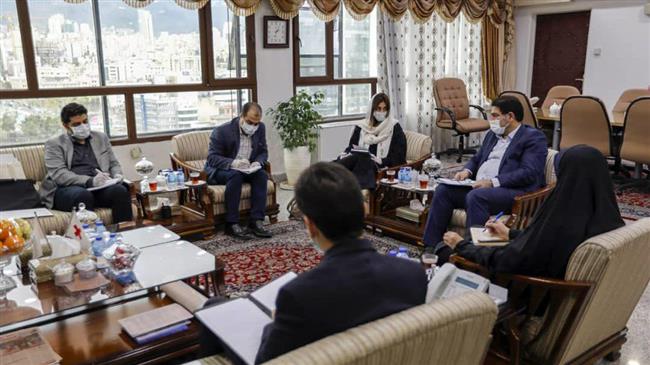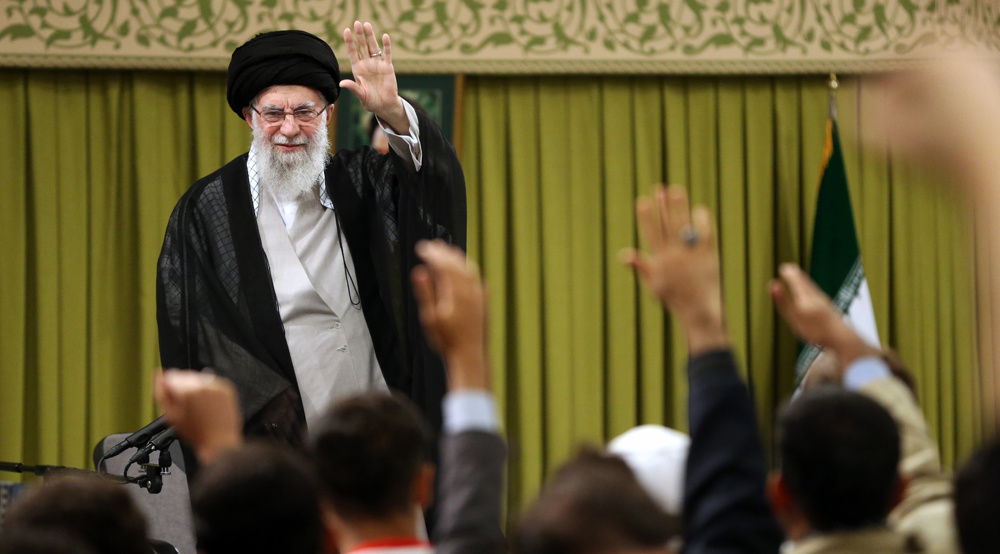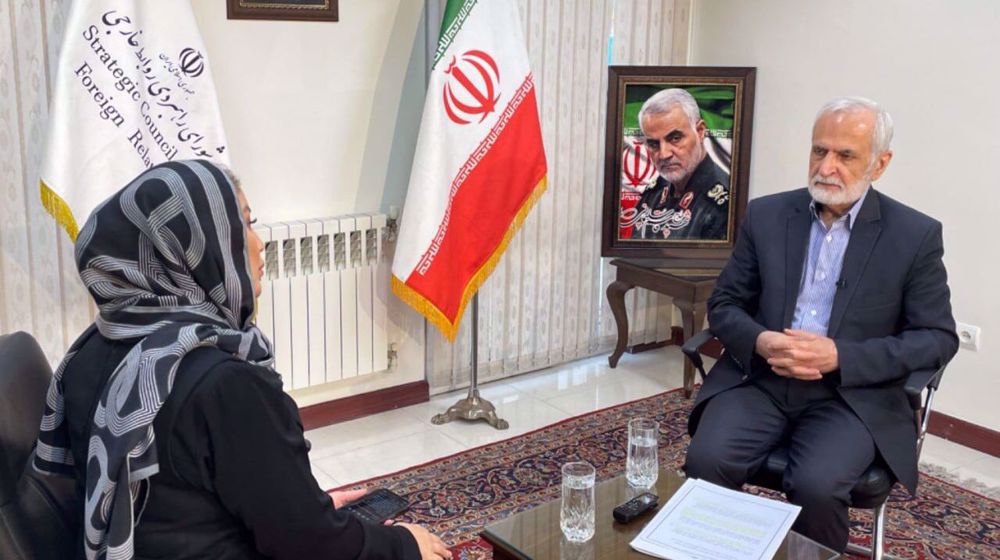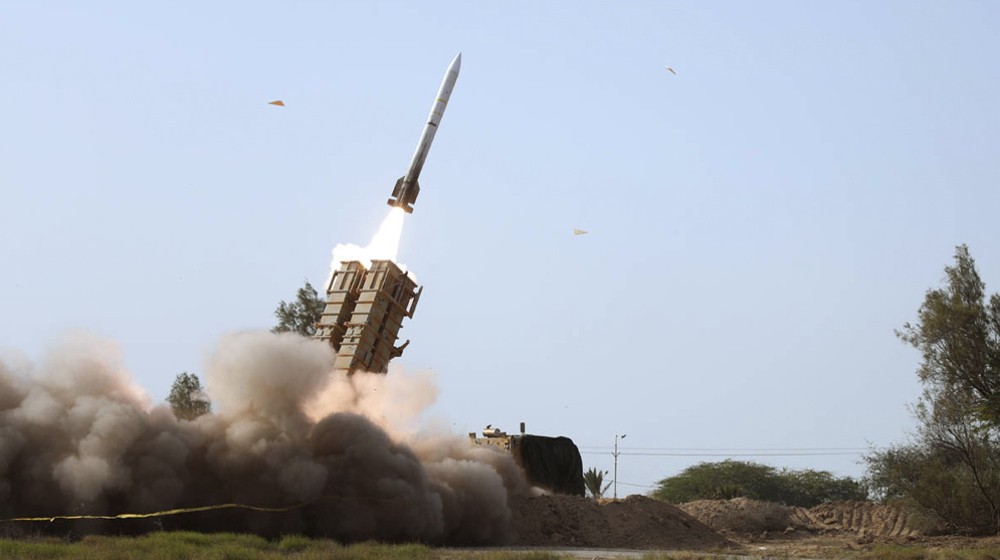Red Cross allocates 500,000 Swiss francs in donation to Iran amid coronavirus fight
The head of the International Committee of the Red Cross (ICRC) delegation in Tehran says the organization is making efforts to create a financial channel for Iran to receive international humanitarian aid amid its battle against the new coronavirus.
Barbara Rizzoli made the remarks in a meeting with the head of the Iranian Red Crescent Society (IRCS), Karim Hemmati, in Tehran on Wednesday.
She also announced the organization’s decision to allocate 500,000 Swiss francs in donation to Iran as the first step to support the country in its fight against COVID-19.
“As the first step, the International Committee of the Red Cross has donated 500,000 Swiss francs to support the Iranian Red Crescent Society in its efforts to confront coronavirus [which] is in progress,” she said.
She also expressed her condolences over the deaths of Iranians, including medical staff and relief workers who were at the forefront of fighting the pandemic.
“The Iranian Red Crescent’s request to have a financial channel for receiving humanitarian aid is a rational and basic request in order to help Iranian people, especially in the situation of coronavirus crisis, and the ICRC, in cooperation with the International Federation of Red Cross and Red Crescent Societies (IFRC), will make every effort from its Tehran delegation to Geneva Headquarters to respond to this request,” said the ICRC head of Tehran delegation.
Touching on the effect of the US sanctions against Iran, the ICRC official said, “We understand the serious concerns about the impact of sanctions on the import of medicine and medical equipment into Iran.”
“Basically, the medical supplies should be exempt from sanctions, but sometimes it is difficult to transfer the cost of medicines through bank channels. In this regard, the ICRC is negotiating not only in the regional level, but also in Geneva and with related organizations. And we are looking at all options and we will not miss any solutions,” she said.
The Red Cross would also seek to interact with Swiss companies to provide some of the special medicine needed by Iran, she added.
“In addition to financial support and efforts to activate the Swiss channel, we would like to cooperate with the IRCS in field of communication and sharing experience of other countries with regard to confronting coronavirus,” she noted.
Praising the officials and all IRCS staff for their special work in the front line of confronting coronavirus, Rizzoli added, “We are closely following the IRCS operations such as information campaigns and supporting the needy, relief work and fever surveillance on roads, and other efforts to protect the health of Iranians during the corona outbreak and other incidents, [and will] inform the ICRC Headquarters in Geneva of such services.”
In the meeting, the head of the IRCS, for his part, pointed to the negative impacts of unilateral US sanctions on Iran, saying before the outbreak of coronavirus, the US sanctions had put a lot of pressure on the Iranian people in the field of treatment and health, but they were multiplied after the outbreak.
“Currently, we are facing difficulties in receiving international humanitarian aid, whether financial or non-financial, [and in] importing medicine and the equipment needed to treat patients with corona, such as ventilators,” he said.
He said Iran expected ICRC president Peter Maurer “to support the IRCS by trying to create a financial channel for receiving international aid in the capacity as a humanitarian organization so that the Iranian people do not suffer more due to the US sanctions.”
The head of the Iranian Red Crescent also reported on the performance of his organization during the recent outbreak and said in terms of confronting coronavirus and in addition to its various activities regarding public awareness, the IRCS had set up screening posts, while as many as 3,400 members were active in this campaign on a daily basis.
He added that the organization planned to provide and distribute some 500,000 hygiene kits specific to people with cancer and special disease.
Moreover, IRCS aid workers have also been serving the people affected by flood in recent days in 25 provinces of the country.
The unilateral US sanctions against Iran, which were reinstated after Washington in 2018 left a UN-endorsed nuclear deal with Tehran and five other world powers -- the UK, France, Russia and China plus Germany -- have been hindering Iran’s fight against COVID-19.
The US' so-called ‘maximum pressure’ through sanctions are compromising the performance of the Iranian healthcare system, despite Washington’s that the bans do not prevent Iran from trading in humanitarian and medical goods.
These US sanctions make the importation of medicine, medical equipment and raw materials needed to produce these goods difficult as foreign countries do not engage in trade with Iran dreading Washington’s punishment.
Iran is currently the worst-hit country by the coronavirus in the Middle East.
The respiratory disease has killed 4,003 people and infected 67,286 others, according to the latest figures released by the Iranian health ministry on Wednesday.
Palestinian media rights group condemns killing of two journalists by Israel
VIDEO | A Tale of Bombs, Blame, and Bedtime Stories
Nov. 1: ‘Axis of Resistance’ operations against Israeli occupation
Brazilian journo fined, ordered to delete posts over criticizing Gaza onslaught
IRGC: Israeli regime incapable of calculating Iran’s decisive response
Russia rejects 'baseless' US claims of producing fake vote videos
Ambassador: Japan studying recognition of State of Palestine
VIDEO | Press TV's News Headlines













 This makes it easy to access the Press TV website
This makes it easy to access the Press TV website